June 9th, 2013 — Design

Chilean born, New York based Sebastian Errazuriz is a self-proclaimed obsessive workaholic who walks a fine line between both art and design, dabbling in both disciplines and doing both with equal verve. Leaving Chile, he headed to New York University where he received his Master’s in Fine Arts and later went on to become the second living South American designer (at age 28!) to have work auctioned at Sotheby’s Important Twentieth Century Design. Recently, he began prepping for his very first museum solo exhibition happening in 2014 at the Carnegie Museum of Art. Let’s see what keeps this young artist/designer inspired in this week’s Friday Five . Photo © White Pine Pictures 1.
The rest is here:
Friday Five with Sebastian Errazuriz
May 27th, 2013 — Design
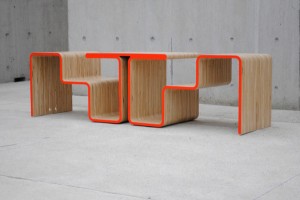
After Architecture , a collaborative design house founded by two Cornell University seniors in the Bachelor of Architecture program, designed the Twofold bench, seating to accommodate two user groups, along with two types of behavior. The all-in-one table slash bench design can host the average person of average height and seat them comfortably 18″ off the ground, perfect for resting your feet or playing a game of chess. The other type of user would be children, with space for the child to slide in and have the table be chest high for game playing or just to feel like a big kid. The bench is milled from plywood profiles, basically inverting the way plywood is traditionally used, causing the linear layers to be exposed. The edges were then painted with a bright, neon color making the curved geometry of the piece pop
Original post:
Twofold Bench by After Architecture
May 14th, 2013 — Design
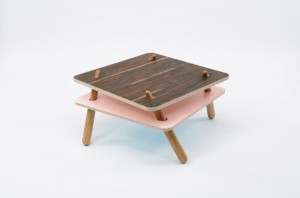
Kobe Design University’s design collective Design Soil presented a collection of new works in Milan called “Lagrangian Point”. The overarching theme of the collection comes from a 1772 essay by Joseph Louis Lagrange called “Essay on the Three-Body Problem.” From the designers: In 1772, in the “Essay on the Three-Body Problem,” Joseph Louis Lagrange indicated the Lagrangian Point, a point exists in the space between the revolving two bodies that gravity and centrifugal force are balanced. A material put on this point keeps balancing and revolving without changing a relative position. A calm stability is found in throughout the various forces crossing.
Go here to read the rest:
Lagrangian Point by Design Soil
October 11th, 2012 — Design
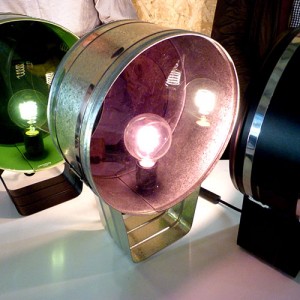
One of the highlights of designjunction was the Designers in Residence stand. Designers in Residence is a Northumbria University scheme for graduates that provides workspace, equipment and mentoring to selected alumni of the BA(hons) 3D Design course there. Graduates use the program to develop their professional practice before fully going it alone – and get the opportunity to exhibit at places like designjunction. There were three stand-out pieces; the first was Submariner, by Neil Conley , which launched at the show. The dim-able lamp was inspired by port holes, diving helmets and periscopes. It’s made from two pieces of bead-rolled steel held in place by two clamps.
Read more:
London Design Festival 2012: Designers in Residence at designjunction
March 3rd, 2012 — Design
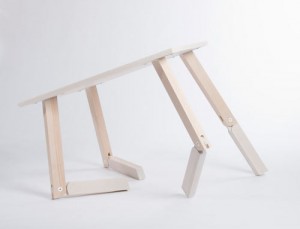
Caroline Olsson of Akershus University, Norway recently won 2nd place in Muuto’s annual design competition for Nordic design for her Bambi Table . Bambi can be used at two different heights, thanks to a hinge inspired by the anatomy of the knee. When all of the “legs” are bent, the table resembles a doe resting in the woods
View original post here:
Bambi Table by Caroline Olsson
February 26th, 2012 — Design
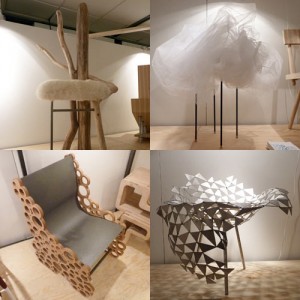
Lund School of Architecture, clockwise from top left: Kim Ohrstrom, Kajsa Nillson, Christopher Polteg and Freja Elvin-Nowak Greenhouse, the hall at the Stockholm Furniture Fair for design schools, students, and independent designers, was one of the most exciting sections of the fair. Gotland University, clockwise from top left: Henke Westling (top left and top right), Philip Bergstrom and Sahar Ballaei I’ve already written about Malin Isaksson , about Grow from the University of Gothenburg , about Alcro’s collaboration with students from Beckmans College of Design and about New Bacon , the super-styled stand from The Royal Danish Academy of Fine Arts, School of Design , but that by no means covers the prolific selection of student work on show. I shall therefore attempt to do justice to what remains, most of which was found within Greenhouse, but some of which was tucked away in different parts of the show. Clockwise from top left: Essi Similia from Aalto University part of the MA Students’ Everyday Tools stand; Sandra Cohen Callman from Beckmans College of Design part of the Never Mind The Object stand; Gaspar Gonzalez and Mikael Axelsson, also Beckmans College of Design Never Mind the Object from Beckmans School of Design asked “Why should you care about objects
Follow this link:
Greenhouse at the Stockholm Furniture Fair
January 7th, 2012 — Design

I need one of these for 2 PM siestas. Cradle is a chair designed by Richard Clarkson, Grace Emmanual, Kalivia Russel, Eamon Moore, Brodie Cambell, Jeremy Brooker and Joya Boerrigter from Victoria University of Wellington. via Yanko Design Share This: Twitter | Facebook | Discover more great design by following Design Milk on Twitter and Facebook . © 2012 Design Milk | Posted by Jaime in Home Furnishings | Permalink | No comments
Read more from the original source:
Cradle
October 21st, 2011 — Design

d.lab is the commercial division of the industrial design Design Incubation Centre of the National University of Singapore. The pieces they develop are simple and minimalist, but still feel unique. Share This: Twitter | Facebook | Discover more great design by following Design Milk on Twitter and Facebook . © 2011 Design Milk | Posted by Jaime in Home Furnishings | Permalink | No comments
Original post:
d.lab
September 23rd, 2011 — Design
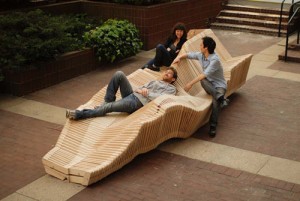
Ten architecture students from Columbia University GSAPP have recently completed Polymorphic , a kinetic installation in the form of a bench. Utilizing an innovative design and engineering solution inspired by the kinetic action of a see-saw and the reverberating motion of a slinky, the double-sided bench is made of a series of 119 interconnected sections and an interactive balance board. The sections are connected via an inventive pivot and bolt system, allowing the vertical movement of one section to be picked up by others down the line.
Read the rest here:
Polymorphic Kinetic Bench
May 12th, 2011 — Designer Stuff

Ivy is a set of modular shelving that allows you to create a custom shelving arrangement.
The collection consists of the three units above, which can be situated in whichever way the user desires. Two examples are shown in the images below.
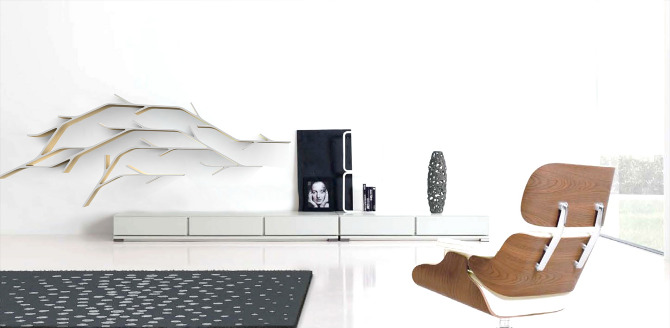
The goal of the Ivy shelving unit is to make a unit that easily adapts to lifestyle changes that occur within our everyday lives.
Each piece of the Ivy shelving connects together using keyhole fasteners, which is also how they connect to the wall.
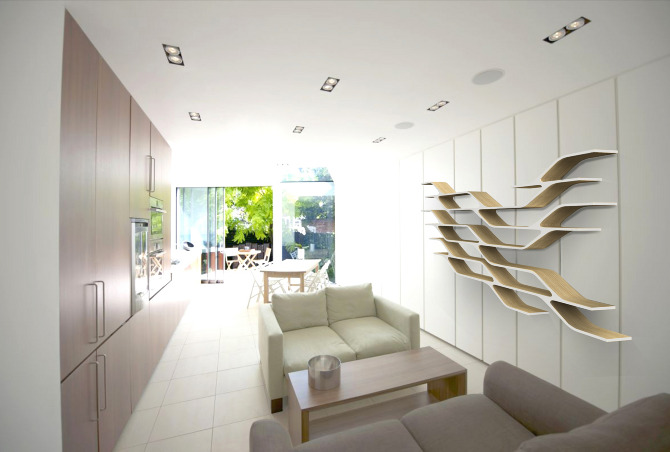
Ivy is designed by Paris Lowitz, an Industrial Design student that is about to graduate from Carnegie Mellon University in Pittsburgh, Pennsylvania.
Read more from the original source: sixdifferentways.com











